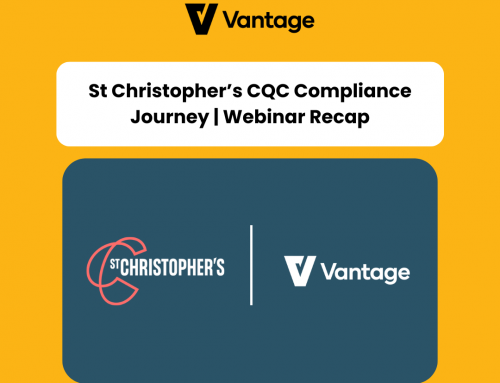Antisocial behaviour can devastate local communities and have a significant effect on people’s mental health and wellbeing. When we envision our communities, we often picture places where neighbours coexist peacefully and public spaces are shared with respect. However, for many individuals across England, this ideal is far from their daily reality. Antisocial behaviour, ranging from minor nuisances like dog fouling and inconsiderate parking to more serious issues like harassment, has become an unsettling presence in their lives.
According to the latest ASB report from the Local Government and Social Care Ombudsman (LGSCO), the situation is far more widespread than we might think. Within the report, the LGSCO has pointed out that people are enduring such behaviour because local councils often fail to harness their full powers or do not fully understand the powers they have to tackle it effectively.

The report states that while no agency has the power to simply irradicate antisocial behaviour and stop it from happening, local councils do have a number of powers and tools available to them. When applied effectively, these can yield significant outcomes, encompassing the capacity to initiate enforcement measures against perpetrators and extend vital assistance and support to ASB victims.
Formal Powers
Outlined in the LGSCO’s report, councils have a set of formal powers granted by the Anti-social Behaviour, Crime and Policing Act 2014 to combat antisocial behaviour effectively:
Community Protection Notices (CPN): These can be issued to halt antisocial behaviour that disrupts community life, especially for environmental issues like noise disturbances, littering on private property, and graffiti. The council must initially provide a written warning, and if the behaviour continues, they can issue a CPN outlining specific actions to be taken or behaviours to be avoided. Non-compliance with a CPN is a criminal offense.
Public Spaces Protection Orders (PSPO): Councils can establish PSPOs to prevent individuals or groups from engaging in antisocial behaviour in public spaces if it is deemed detrimental to local quality of life. PSPOs can be used to restrict activities like begging, exclude dogs from specific areas, or curb disruptive night time behaviour by regulating alcohol consumption. Failure to comply with a PSPO can result in a fixed penalty notice.
Closure Notices and Orders: Councils can issue closure notices requiring certain premises to shut down for up to 48 hours swiftly. This measure is taken to address nuisances or disorders caused by these premises, with the aim of protecting victims and communities. After issuing a closure notice, the council can apply to the magistrates’ court for a closure order within 48 hours, which can prevent access to the premises for up to three months. Failure to comply with closure notices or orders is considered a criminal offense.
Injunctions: Councils have the authority to seek court-issued injunctions to prohibit individuals from engaging in specific behaviours or to compel them to address the root causes of their actions. If someone does not comply with an injunction, the council can apply for a court-issued arrest warrant.
Informal Tools
The LGSCO’s report also outlines the statutory guidance accompanying the 2014 Act that sets out early and informal interventions which councils may use to address antisocial behaviour, these include:
Verbal or Written Warning: Councils may issue a verbal or written warning when there is evidence of or the likelihood of antisocial behaviour. The warning should specify the unacceptable behaviour, its consequences, and reasons for its unacceptability.
Mediation: Mediation can resolve issues by bringing parties together, especially in neighbour disputes. It should be voluntary, and support should be provided to vulnerable individuals. Mediators facilitate discussions and agreement, which are then documented.
Acceptable Behaviour Contracts (ABCs/ABAs): These are written agreements between the council and the perpetrator of antisocial behaviour. The individual commits to specific actions or avoidance. Non-compliance isn’t formally sanctioned but can justify further actions.
ASB Case Review (‘Community Trigger’): The 2014 Act allows for the review of ASB complaints, known as the ‘Community Trigger.’ Relevant bodies (council, police, other agencies) assess whether the local threshold is met, share information, review actions taken, and inform the complainant. If further action is needed, an action plan is created. The threshold typically involves no more than three reports of ASB in the last six months.
The LGSCO’s Report Findings
The LGSCO make independent and impartial decisions on whether councils have properly investigated reports of antisocial behaviour. Between April 2022 – March 2023 the LGSCO carried out 69 detailed investigations regarding ASB. The LGSCO upheld 51 of these investigations (74%) meaning they found fault in how the council had acted. Within the LGSCO’s report, the following common issues are identified and explored:
- Thresholds and ‘Gatekeeping’: One common issue is the application of stringent thresholds that victims must meet before councils initiate investigations, often referred to as ‘gatekeeping.’
- ASB Case Review Process: Issues with the ASB case review (Community Trigger) process include inadequate signposting for complainants, limited awareness of the process, and incorrect application of relevant tests.
- Decision-Making Confidence: Officers sometimes hesitate to make decisions despite having substantial evidence, leading to prolonged investigations without resolution.
- Collaboration Challenges: Effective collaboration with other organisations, such as the police, is often lacking, hampering the resolution process.
- Communication Breakdown: Poor communication between councils and complainants further compounds the problem.
- Response Time: Delays in responding to reports of antisocial behaviour can exacerbate the situation, causing distress to complainants.
- Limited Consideration of Options: Some councils fail to explore the full spectrum of formal and informal powers at their disposal when addressing antisocial behaviour.
The findings from their investigations in the past year underscore the need for improvement in several areas and while antisocial behaviour poses significant challenges to communities and the mental well-being of ASB victims, it is a problem that can be addressed through proactive measures, informed decision-making, and collective efforts. By embracing the tools and recommendations outlined in the LGSCO’s report, local councils can work towards creating safer communities and ensure they are providing the best possible support to the people they serve. You can read the LGSCO’s full report and their recommendations for improvement below.










